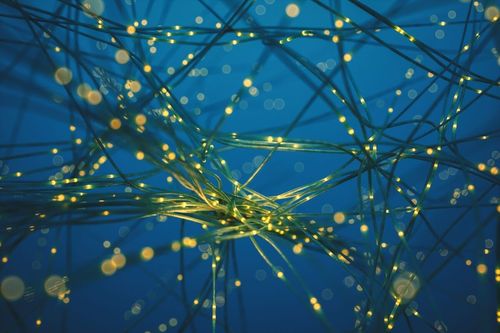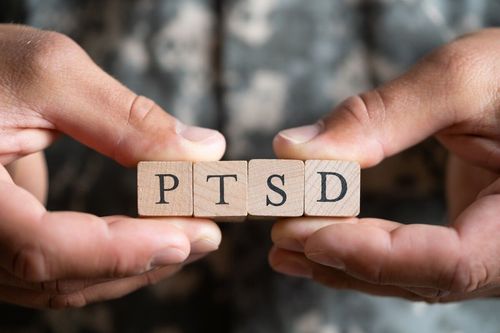The autonomic nervous system plays a central role in controlling numerous processes in our body. It can be thought of as a "captain" who coordinates diverse tasks. If this "captain" is out of sync, the nervous system loses its ability to control itself properly. In practice, it is often the case that such an imbalance is triggered by excessive demands or chronic stress.
A disturbed autonomic nervous system can be compared to an inflammation: This overload disrupts the natural rhythm, which impairs self-regulation. The first step towards healing is to specifically reduce this state of overload. A conscious phase of underload is needed to relieve the pressure and give the nervous system the opportunity to regenerate. The more you try to actively improve the situation, the more you risk stressing the nervous system again, which can delay or even worsen the healing process.
The key to healing therefore lies in consciously relieving stress. By focusing on reducing external and internal pressures, you create the basis for the autonomic nervous system to return to its natural rhythm and to apply the body's own regeneration process. This approach requires patience and the understanding that healing is a gradual process.
My name is Rico Brunner, Energy Field Therapist since 1998, and in this article I talk about the topic: how can the autonomic nervous system be healed and brought back into balance.
How do you recognize disorders in the autonomic nervous system and what symptoms occur?
Disorders of the autonomic nervous system are often difficult to identify as they usually show random symptoms. In my experience, sufferers often report pain that occurs in one area and later recurs in another. Such symptoms often results in doctors being unable to identify a clear cause. This reinforces the feeling in many people that "something is wrong with them", which causes more uncertainty.
In addition to physical symptoms, an imbalance of the autonomic nervous system also affects the psyche and emotions. For example, those who are affected experience phases of stress, excessive demands or reduced self-esteem. These fluctuations occur because the nervous system - the "captain" of internal control - can no longer perform its regulatory function. This causes the control system to lose its balance: sometimes steering to the left, sometimes to the right, sometimes up, sometimes down. This lack of stability not only manifests itself physically, but also emotionally and mentally.
This changeable appearance is one of the main characteristics relating to disorders of the autonomic nervous system. It illustrates that the symptoms can be both physical and psychological in nature and often occur in unpredictable ways. This makes it difficult to diagnose them clearly, but at the same time emphasizes the importance of targeted observation and support of the nervous system.
Where do disturbances in the autonomic nervous arise come from and how are they related to stress?
Disorders in the autonomic nervous system are often caused by overstimulation and an overwhelmed state in processing these stimuli. This overload can have both physical and psychological causes. Constant stress has a particularly strong effect on the nervous system, as it disrupts its natural rhythm. An intact autonomic nervous system is characterized by exceptional stability. It is able to control numerous complex processes efficiently and react flexibly to different needs.
However, the nervous system can get "out of sync" if it is constantly oversstrained. This imbalance can be compared to a dancer who can no longer find the rhythm of the music. In such a state, the nervous system loses its ability to function harmoniously and smoothly. The result is a kind of "inflammation" in which the persistent points of friction and resistance further exacerbate the imbalance. This inflammation increases the dysfunction of the nervous system, which can ultimately lead to a "collapse".
The severity of a disorder depends on the intensity of the excessive overload. Some sufferers experience mild symptoms, while others have severe restrictions that have a massive impact on everyday life. It is therefore important to specifically support and stabilize the autonomic nervous system in order to restore its natural order and functionality.
What effect does dysregulation of the autonomic nervous system have on our health?
The autonomic nervous system is a key factor in mental and physical health. If it no longer fulfills its function properly, numerous processes in the body cannot be supported optimally. This impairment has a direct impact on the body's natural rhythm, which also becomes unbalanced as a result. The autonomic nervous system can be seen as a kind of "organizer": If it functions perfectly, structure and harmony prevail. However, if it is disturbed, disorder spreads throughout the entire system.
The effects are not only physical, but also psychological. A strong and stable nervous system ensures emotional balance and mental clarity. It creates a basis for stability in the psyche and supports the ability to deal with stress and challenges. If the nervous system is out of sync, the psyche and emotions also lose their rhythm. This leads to a state of overwhelm, which impairs overall well-being.
It is therefore essential to heal a disturbed autonomic nervous system in order to restore inner order. This healing ensures that both the body and the psyche can return to their natural rhythm and function stably again.
What steps help to calm the autonomic nervous system and bring it into balance?
Slow and targeted activities are particularly helpful in calming an overstrained autonomic nervous system. One option is Thai chi, as the slow, flowing movements have a targeted calming effect and at the same time have a meditative component. Slow walking or deliberate strolls can also help to calm you down.
It is important to slow down everyday activities. For example, you could consciously plan more time when cooking: wash the salad slowly, prepare the sauce in peace and cut the vegetables with care. This deliberate slowing down brings the mind into a meditative state and gives the nervous system the opportunity to regenerate. Such meditative actions help to activate the self-healing powers of the nervous system.
However, activities that additionally stimulate the nervous system are not advisable. If the autonomic nervous system is already "inflamed", any form of stimulation can increase the overwhelmed state. It is therefore crucial to focus on calming and relieving techniques in therapeutic approaches to provide the nervous system with the necessary rest for healing.
Which natural methods are suitable for healing the autonomic nervous system?
Methods that have a calming effect and reduce stress levels are particularly suitable for healing the autonomic nervous system. Stress relaxation tests can help to relax the nervous system by specifically aiming to reduce overload. Another option is the support of homeopathic remedies, which can have a calming effect. It is of utmost importance that these remedies dampen the nervous system without completely "switching it off". Only a dampened nervous system remains functional and can initiate the necessary steps for self-healing. If, on the other hand, it is switched off by strong chemicals, the symptoms may be alleviated, but the actual regeneration does not take place.
In addition to the use of natural remedies, it is also essential to avoid stress as far as possible. Exercise plays a central role here: activities such as walks, or light yoga can gently stabilize the nervous system as well as reduce stress. It is important to understand that the autonomic nervous system is extremely complex and often takes time to heal. A slow and patient approach is therefore crucial to achieve lasting results.
Conclusion – How Can the Autonomic Nervous System Be Healed?
Healing a disrupted autonomic nervous system requires above all rest, patience, and a conscious slowing down of daily life. Since stress and chronic overload are common causes of imbalance, the key to regeneration lies in targeted relief and gentle regulation.
Practices such as Tai Chi, slow walks, meditative activities, and natural remedies support the nervous system in regaining its natural rhythm. It is essential to avoid additional pressure or overstimulation in order to activate the body's self-healing powers effectively and to sustainably restore physical, emotional, and mental balance.





